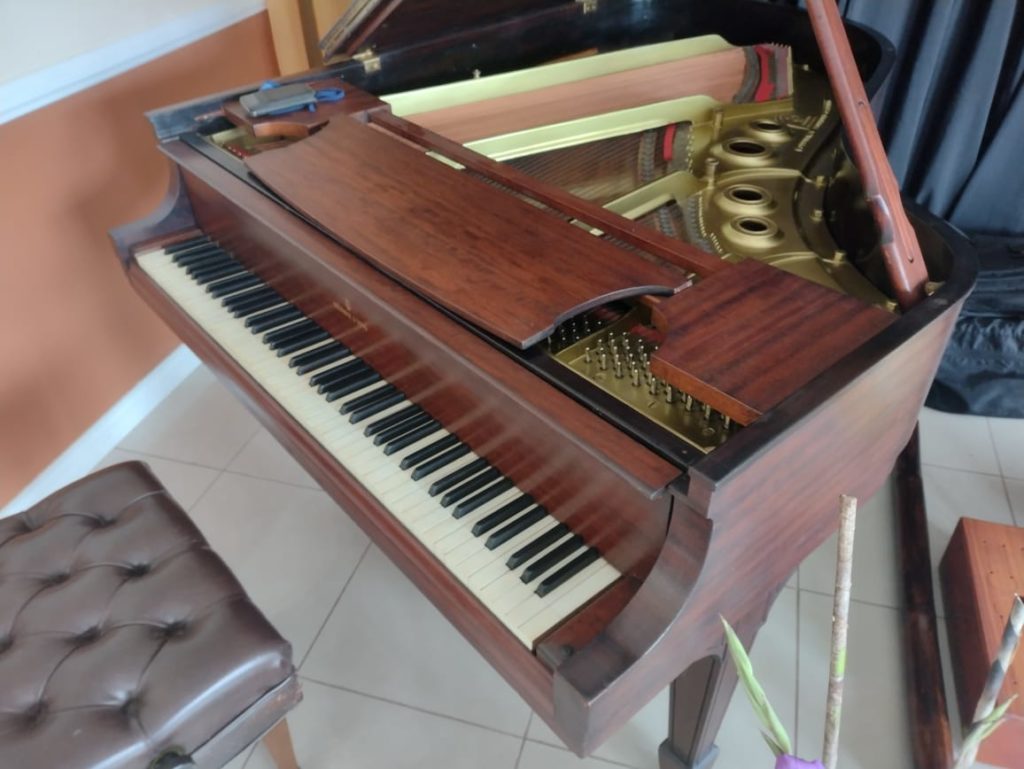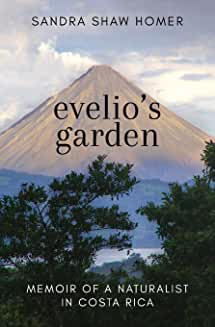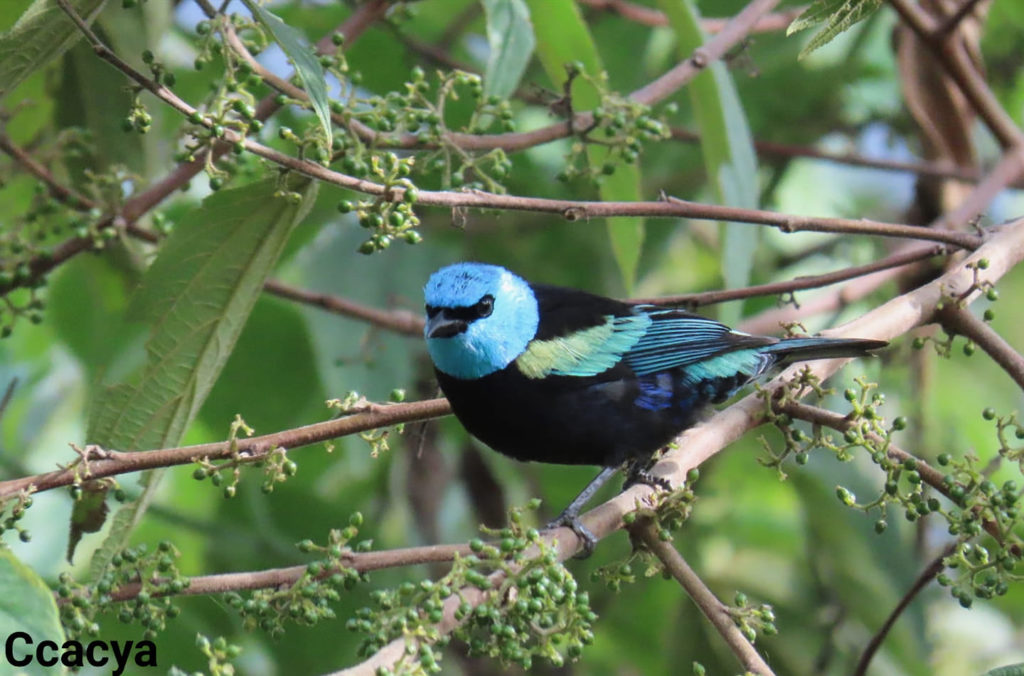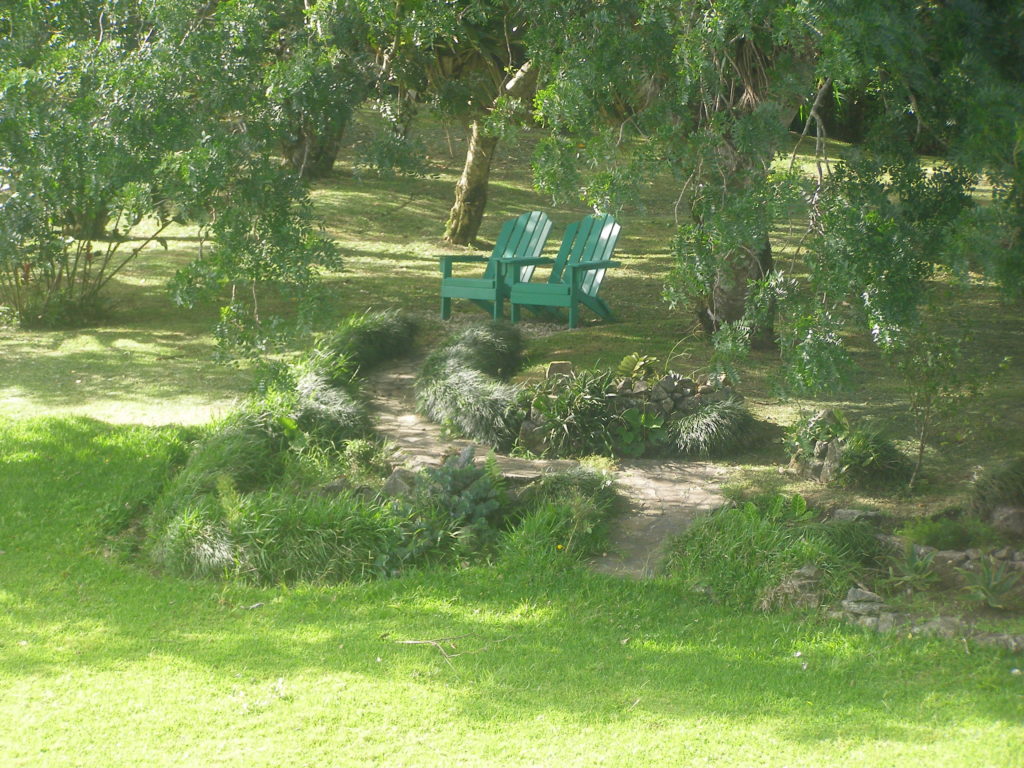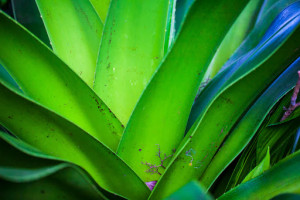Recently published in Ponder Review, Vol II, Issue 1.
My grandmother’s hands tore helplessly at the tissue paper surrounding the new dress in its box. I leaned in and folded back one leaf of the paper, so she could better see what she was doing.
I had bought her the dress, a dark green knit, because in the nursing home all her dresses that hadn’t been stolen were covered with food stains, pilled and frayed. I had taken her to lunch at Peddler’s village, to the Cock ‘n Bull, where she sipped her frozen daiquiri through a straw and ate a ball of butter whole, perhaps thinking it was cheese. I didn’t mention that it wasn’t cheese.
Trying on the dresses after lunch – none of them like she used to wear; the styles had changed, and this was a long way from the dress shop she had patronized in Albany for 27 years – I noticed that her slip was gray and wanted mending. There was an unclean smell about my grandmother, an old, sour smell. I knew they bathed her regularly in the nursing home, or at least I hoped they did. The smell must have been coming from the dirty slip, but I remember hearing that death has a smell, and for many hours, even after many cigarettes, I couldn’t get that smell out of my memory’s nose.
And now, a week later, I was collecting her to take her back to Philadelphia for her 90th birthday party, packing up her meager things so that she could overnight in my grownup house, trying to find her toothbrush, the bed jacket, clean underwear – all jumbled together in the several drawers of the antique dresser we had moved into her room.
I knew that she didn’t know where she was going, or why, but I hoped her mind, long past complete utterances, was also beyond worry. She followed my instructions meekly, like a guilty child.
When she pulled off the sweater and trousers, neither of which belonged to her, I was surprised to find her naked below, the small pale V sandwiched between loose thighs and the hanging flesh of her abdomen – gray, wrinkled, vulnerable. In our great old age, almost 90, we step backwards, I thought, stripped of our minds, our memories, even our dignifying pubic hair. Why wasn’t she wearing panties? Her bra was in place – someone must have to help her into that; her arthritic hands, once pianist’s hands, could never fasten the hooks of that bra.
There was the faint smell of urine hanging in the air of her room like an acrid fog. And, as I turned away to hide my sadness, fumbling through the few possessions I had gathered for our trip, it occurred to me that she must finally be incontinent. I found some panties – not her style; she had always worn open-leg panties, and these had elastic around the thighs – and held them out for her to step into.
First the mind, and then the body goes, the bare little wedge of pubis now hiding a urethra that betrays her. I helped her into the panties, her swollen hand supporting her weight on my shoulder, and then I made her sit down on the edge of the bed to stretch on the pantyhose. She never used to wear those either, always a girdle with garters. Even if she were staying at home all day with no one coming to visit, Grandma would pull her girdle over her plump hips, slip into her all-in-one, fasten up the nylon stockings, put on a nice dress and the single-strand pearl necklace that was her signature.
She never put a worn garment back into the closet, so that everything there smelled fresh and new.
While she was struggling to get the pantyhose straightened around her hips, I looked in the cabinet under the sink in the bathroom she shared with the occupant of the room next door and found a box of disposable diapers. I packed it to into the bag for home, not certain if I could ever insist she put one on.
Next, I helped her into the slip I had washed and mended, and finally I gathered up the dress and held it over her head. She lifted her arms up straight like an expectant child, and a small uncertain smile touched the corners of her mouth. A new dress. This much she understood. I guided her arms into the sleeves and pulled the dark green knit around her, straightening the shoulders over the narrow bones. I led her to the mirror above the dresser, fished my own comb out of my purse and arranged her fine, pale hair. The eyes reflected back at me were expressionless. Did she know whom she was looking at? Did she remember the music?
I put my arm around her shoulders and squeezed gently, putting my cheek next to hers in the mirror, trying to smile through the constriction of my heart. “You look beautiful,” I said. And, for just the flicker of an instant, the distant memory of a smile in her eyes, I thought she recognized me.
© Sandra Shaw Homer, 2018
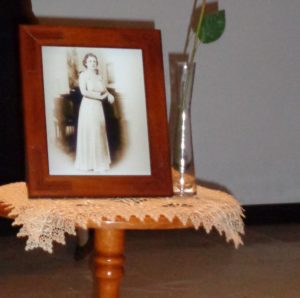
Photo by Roberta Ward Smiley

